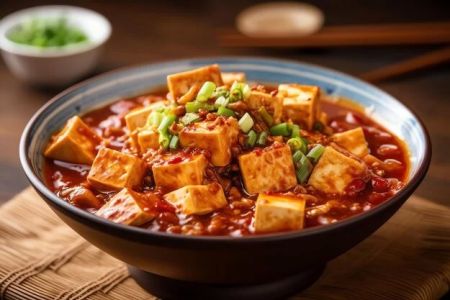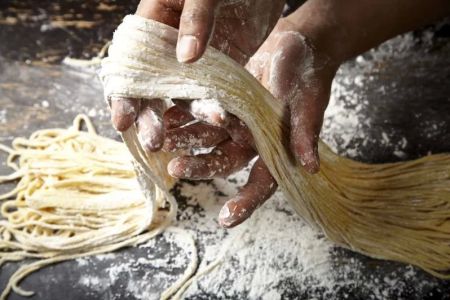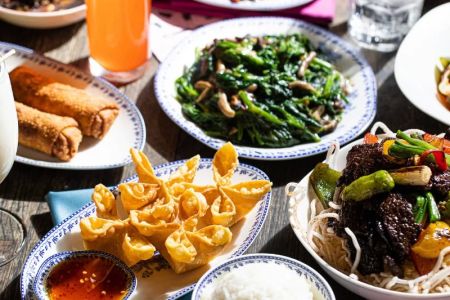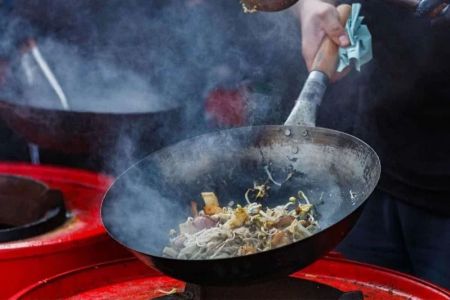- 1-Overview-of-Halal-Dietary-Requirements
- 2-PF-Changs-Halal-Policy-Explained
- 3-Practical-Dining-Tips-for-Halal-Consumers-at-PF-Changs
- 4-Case-Studies-from-Muslim-Diners
- 5-Explore-More-Halal-Chinese-Food-Options
1. Overview of Halal Dietary Requirements
Halal dietary laws are a critical aspect of Muslim food consumption, governed by Islamic principles that dictate permissible foods and preparation methods. For meat to be halal, it must come from an animal slaughtered according to specific religious rites. Additionally, certain ingredients like pork and alcohol are strictly prohibited.
Understanding halal requirements is essential when dining out, especially at mainstream restaurants that may not explicitly cater to halal diets. Consumers often seek clarity on which eateries can meet these standards safely and reliably.
1.1 The Importance of Halal Certification
Halal certification involves rigorous inspection by authorized bodies to ensure compliance with Islamic law. For Muslims, certification provides peace of mind that the food adheres to religious standards. Without certification or clear policy statements, it can be challenging to verify if a restaurant’s food is truly halal.
1.2 Common Challenges in Western Restaurants
Many popular chains in Western countries, including Chinese cuisine restaurants, may not fully align with halal standards due to shared kitchens, use of non-halal meat, or inclusion of alcohol in cooking. This makes researching and verifying halal status crucial for observant diners.
2. PF Chang’s Halal Policy Explained
When asking “is PF Chang’s halal?” the answer is nuanced. PF Chang’s is a renowned American restaurant chain specializing in Asian-inspired dishes, but it does not have an official halal certification across its locations. This means that while some menu items may be free from pork and alcohol, the lack of formal halal certification means strict halal compliance cannot be guaranteed.
2.1 Menu Ingredients and Preparation
PF Chang’s menu includes a variety of meat and vegetarian dishes, but many meat options use conventional, non-halal sources. The kitchen often handles both halal and non-halal items, leading to potential cross-contamination concerns for strict halal followers.
2.2 Regional Variations and Special Requests
Some PF Chang’s locations in areas with significant Muslim populations may offer halal-certified meat or special accommodations, but this varies widely by location and is not a corporate-wide policy. It is advisable to check directly with the restaurant before dining.
3. Practical Dining Tips for Halal Consumers at PF Chang’s
For those who want to enjoy PF Chang’s while adhering to halal dietary laws, here are some practical strategies:
3.1 Inquire Directly About Halal Options
Before visiting, contact the specific PF Chang’s location to ask about halal meat availability and kitchen practices. Some restaurants might offer halal chicken or vegetarian options that fit halal requirements.
3.2 Opt for Vegetarian or Seafood Dishes
Many vegetable-based or seafood dishes do not contain prohibited ingredients and are safer choices. However, cross-contamination remains a risk in shared kitchens, so caution is advised.
3.3 Avoid Sauces and Marinades Containing Alcohol
PF Chang’s uses some sauces and marinades that include alcohol or non-halal ingredients. Reviewing ingredient lists or asking staff about specific dishes can help avoid non-compliant items.
4. Case Studies from Muslim Diners
Experiences shared by Muslim customers illustrate the challenges and solutions when dining at PF Chang’s:
4.1 Story of a Muslim Family Seeking Halal Options
A Muslim family in Chicago found that their local PF Chang’s did not offer halal meat, so they focused on vegetarian dishes and occasionally brought their own halal-certified meat to supplement their meals. While not ideal, this approach allowed them to enjoy the ambiance and flavors without compromising their beliefs.
4.2 Community Efforts to Encourage Halal Certification
In cities with larger Muslim populations, community members have petitioned local PF Chang’s franchises to consider halal certification, citing demand and inclusivity. Some locations have responded by providing halal chicken, showing that customer feedback can influence restaurant policies.
5. Explore More Halal Chinese Food Options
For those seeking authentic halal Chinese cuisine without uncertainty, exploring dedicated halal Chinese restaurants can be more reassuring. These establishments ensure strict adherence to halal standards and often feature traditional recipes made with halal-certified ingredients.
Additionally, our site Chinese Food offers a curated selection of halal-friendly products, restaurants, and recipes, helping food lovers find trustworthy options and enjoy flavorful meals that meet their dietary needs.







